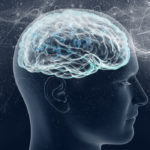Our skull acts like a helmet to protect our brain, which is made of soft tissue. Sitting in water and fluid, however, our brain is not compactly protected by our skulls, which is why we are instructed to wear helmets when we are at risk for impact. When we hit our head or have our skull impacted in some way, it sends our brain crashing against our skull and squishing around inside of it. Whereas in a helmet, the outside of our skull its structured padding, inside of our skull, our physical brain takes a hit. The brain experiences swelling and bruising. Unlike other muscles in the body, brain swelling and bruising can last long-term and have fatal consequences.
Even professional athletes, namely football players, who use protective gear like helmets, experience concussions. A large movement within the NFL, the National Football League, saw more than 4,000 professional football players in a lawsuit against the organization. Having suffered years of concussions in a high impact sport, many were experiencing TBI, Traumatic Brain Injury. Short term effects of concussion can be uncomfortable and alarming. Long term, TBI can affect mental health causing depression, cognitive difficulties, and in cases, lead to thoughts of or attempts at suicide. Traumatic brain injury can also promote a higher likelihood of abusing drugs and alcohol, leading to an additional wellspring of negative side effects.
If you have suffered a concussion and are experiencing suicidal thoughts, please contact your doctor immediately or call the National Suicide Prevention Lifeline: 1-800-273-8255
Research has suggested that the effects of an untreated concussion can last for decades and lead to symptoms which can mirror Post Traumatic Stress Disorder, Parkinson’s Disease and Alzheimer’s.
Long-term symptoms can include:
- Difficulty paying attention
- Short-term memory problems
- Challenges performing daily tasks
- Cognitive ‘fuzz’ or feeling slow in brain function
- Decision-making struggles
- Inability to process information
- Feeling impaired in living daily life
- Depression, Anxiety, and Insomnia
- Changes in mood, outlook on life, feelings of self-worth
All of these long-term effects of a traumatic brain injury are providing factors to the development of addiction. Cognitive impairments occur as the result of substance abuse and continue to contribute to the addiction process in the brain. Introducing drugs and alcohol to an already traumatically injured brain can enhance these side effects and encourage drug addiction to continue.
If you have suffered a severe concussion and are experiencing difficulties with addiction, help is available. Tree House Recovery in Portland, Oregon, offers a men’s residential treatment program focused on healing the brain while creating sustainable change in mind, body, and spirit. We’re showing men how to find freedom from addiction. Call us today for more information: (503) 850-2474




